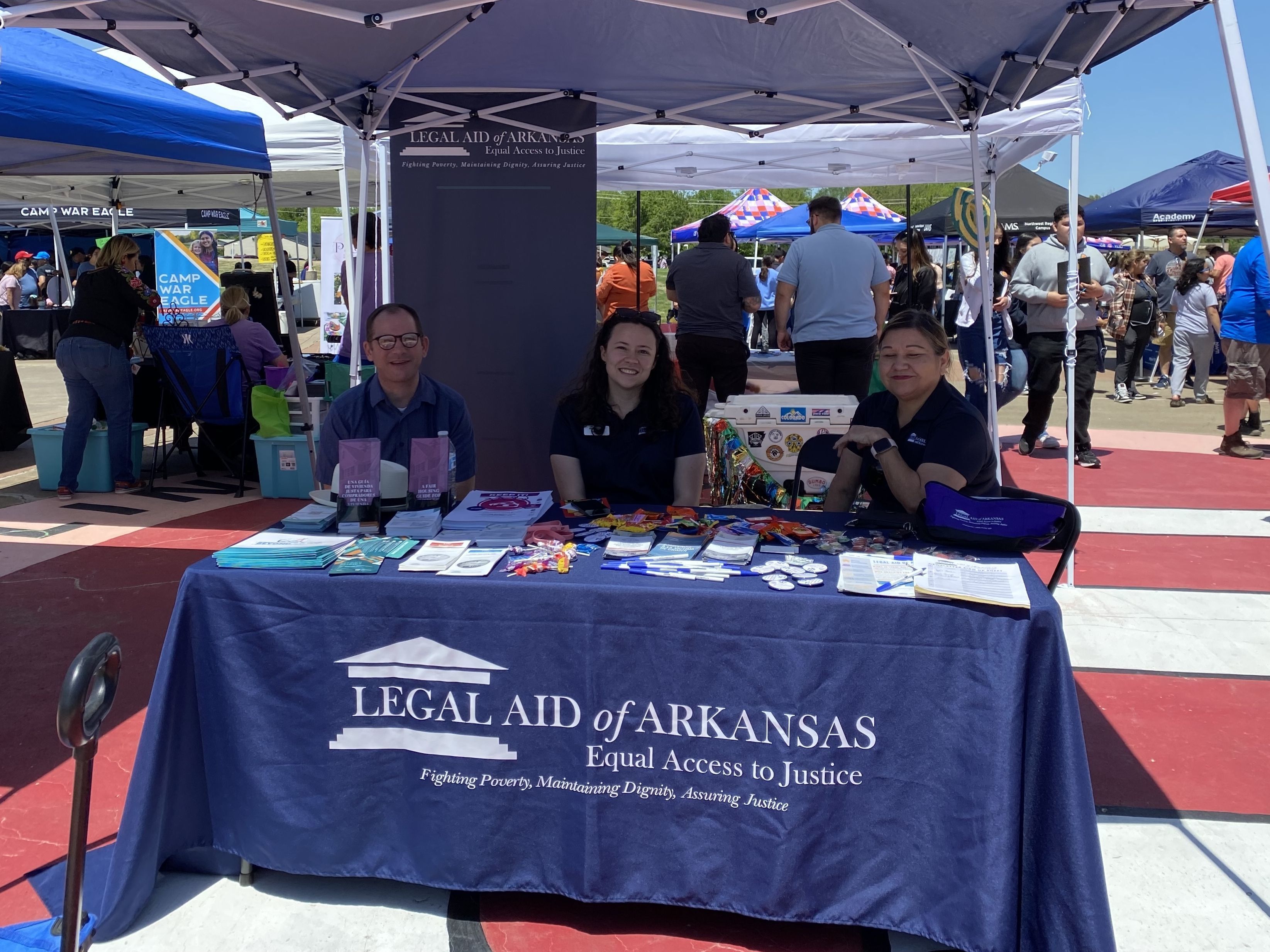Due to limited resources, Legal Aid of Arkansas workgroups must sometimes make hard decisions about which cases to accept. Legal Aid workgroups have created a set of guidelines call Case Acceptance Priorities to help decide which cases to accept based on the organization's priorities. Legal Aid's priorities consist of four core areas:
- Access to Safe and Affordable Housing;
- Protection from Domestic Violence;
- Economic Justice; and
- Consumer Rights
These core areas reflect Legal Aid's strategic focus to support families; preserve homes; maintain economic stability; ensure safety, stability and health; and to identifiy and address the needs of vulnerable populations.
Case Acceptance Priorities
Find Legal Aid's general case acceptance priorities and specific case acceptance priorities for each workgroup here.
Decisions
Workgroups make decisions according to case acceptance priorities. Some cases are eligible for extended representation, but others are not. Legal Aid staff may offer advice, limited services, and referrals to any eligible applicant, even in cases that are not eligible for extended representation. Extended representation may involve negotiation; document preparation; administrative or court representation; appellate practice; systemic advocacy; transactional work; community economic development; or legislative and administrative rulemaking, as permissible.
When evaluating a case for extended representation, workgroups will consider:
- The likelihood of legal success;
- The amount of program resources required to address the legal problem;
- The availability of program resources for effective representation;
- Any particular vulnerability of the applicant;
- Alternative community and pro bono resources;
- The seriousness of the legal matter, including its impact on the applicant and whether
- the matter is common or systemic in nature; and
- The long-term benefit of representation to the client and/or client community.
Pro Bono Resources
To maximize the use of volunteer resources, Legal Aid may accept cases outside of case acceptance priorities when volunteer resources are available. In these cases, Legal Aid will notify clients before case acceptance and attempted referral that if no volunteer resource is available, only advice, limited services, or referral will be provided.
Targeted Projects and Populations
Legal Aid may provide specialized services to address the needs of specific populations. Priorities and financial guidelines can be modified for specific geographic areas, projects, or targeted underserved or vulnerable communities or areas experiencing disasters. For special projects without separate funding, financial guidelines may be modified up to 200% of the national eligibility level. Expanded priorities shall be specified by an addendum to these priorities.
When specialized grant funding exists, Legal Aid may expand income eligibility or case priorities to meet grant objectives and client need. For example, Title III, LITC, MLP, HUD, VOCA, National Health Law Program, SSVF, Health Resources and Services Administration Rural Opioid funding, and other individual grants currently on hand or that may be received during the year, and donation funding may exceed 200% when/if allowed by those specific grants or funding sources. All expansions will comply with LSC regulations.
For 2023, targeted projects may include medical-legal partnerships, victims of Adverse Childhood Experiences in targeted areas, low-income taxpayer clinic, fair housing issues, veterans, individuals and families impacted by substance use disorder, including opioid use disorder (cases falling within the Beyond Opioids project will be given higher priority), and racial equity.
Emergency Cases
Emergency situations may arise where Legal Aid is compelled to undertake legal representation on a case outside acceptance priorities. Subject to the executive director's or designee's approval, emergency representation is allowable under the following conditions:
- Client is eligible for legal service; and
- Legal assistance is immediately necessary to:
- Secure or preserve the necessities of life;
- Protect against or eliminate a significant risk to health and safety;
- Address significant legal issues that arise because of new or unforseen circumstances; or
- To prevent an extreme miscarriage of justice




